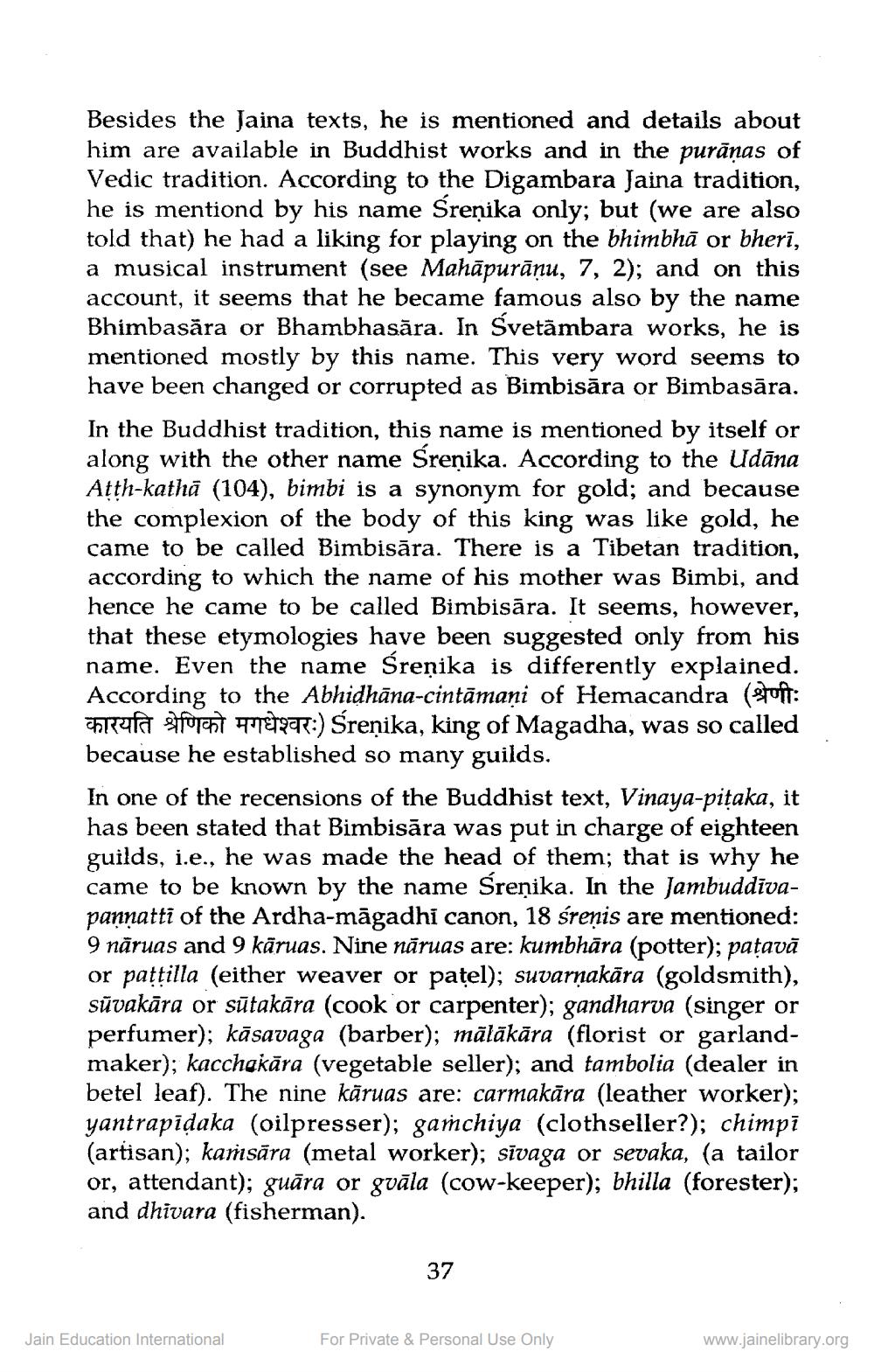________________
Besides the Jaina texts, he is mentioned and details about him are available in Buddhist works and in the purāṇas of Vedic tradition. According to the Digambara Jaina tradition, he is mentiond by his name Śreņika only; but (we are also told that) he had a liking for playing on the bhimbhā or bherī, a musical instrument (see Mahāpurānu, 7, 2); and on this account, it seems that he became famous also by the name Bhimbasăra or Bhambhasāra. In Svetāmbara works, he is mentioned mostly by this name. This very word seems to have been changed or corrupted as Bimbisāra or Bimbasāra. In the Buddhist tradition, this name is mentioned by itself or along with the other name Sreņika. According to the Udāna Atth-kathā (104), bimbi is a synonym for gold; and because the complexion of the body of this king was like gold, he came to be called Bimbisāra. There is a Tibetan tradition, according to which the name of his mother was Bimbi, and hence he came to be called Bimbisāra. It seems, however, that these etymologies have been suggested only from his name. Even the name Śreņika is differently explained. According to the Abhidhāna-cintāmaņi of Hemacandra (soft: Chrufa sforch ET207:) Sreņika, king of Magadha, was so called because he established so many guilds. In one of the recensions of the Buddhist text, Vinaya-pitaka, it has been stated that Bimbisāra was put in charge of eighteen guilds, i.e., he was made the head of them; that is why he came to be known by the name Sreņika. In the Jambuddīvapannatti of the Ardha-māgadhi canon, 18 śrenis are mentioned: 9 nāruas and 9 kāruas. Nine năruas are: kumbhāra (potter); pațavā or pattilla (either weaver or patel); suvarņakāra (goldsmith), sūvakāra or sūtakāra (cook or carpenter); gandharva (singer or perfumer); kāsavaga (barber); mālākāra (florist or garlandmaker); kacchakāra (vegetable seller); and tambolia (dealer in betel leaf). The nine kāruas are: carmakāra (leather worker); yantrapīdaka (oilpresser); gamchiya (clothseller?); chimpi (artisan); kaṁsāra (metal worker); sīvaga or sevaka, (a tailor or, attendant); guāra or gvāla (cow-keeper); bhilla (forester); and dhivara (fisherman).
37
Jain Education International
For Private & Personal Use Only
www.jainelibrary.org




